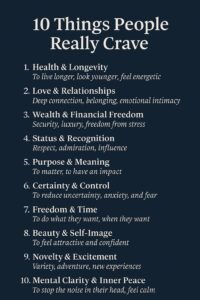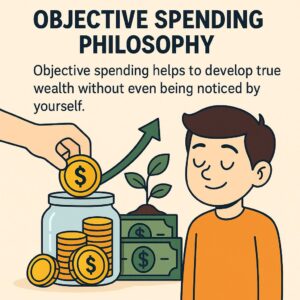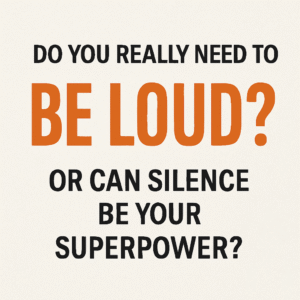
A personal take on building real confidence that lasts.
If you are reading this blog, chances are you’re trying to understand why you sometimes feel less confident than others. You’re probably looking for a practical way to build the kind of confidence that feels real and lasting. Confidence, in many ways, is the tool we all need to move through society and make progress in life. It helps us express ourselves, build relationships, and act. But the truth is, not everyone has it—and you’ve probably seen that.
You might know people who seem genuinely confident. They believe in themselves, they speak up, and they move through life like they know where they’re going. But for some reason, that doesn’t feel like you. So, let’s talk about why. Why do some people naturally feel confident while others struggle?
If we all had strong, stable confidence, there wouldn’t be any reason for me to write this. But the reality is different. Some people are confident. Others aren’t. And if you’ve ever asked why, you’re not alone.
Why Some People Are Confident and Others Aren’t
Let me explain it from my own experience. I’m not quoting studies or articles here—this is based on what I’ve seen in real life, through people I’ve interacted with, and from what I’ve personally experienced.
Confidence, as I see it, comes from two things: your genetics and your environment. These two factors shape your brain chemistry, and your brain chemistry influences your personality. If your brain is wired to handle stress well, or if it naturally keeps you balanced, then you probably feel confident no matter what your circumstances. You can be happy and grounded, whether you have money or not, or whether life is going well or not.
Now, genetics is one part of it. But the other major factor is your social environment—especially how you were treated growing up. If, as a child, you were surrounded by criticism, emotional stress, or people who constantly dismissed your ideas or efforts, that environment can damage your self-image. And when that happens again and again, it’s no surprise that your self-belief starts to fade. You grow up second-guessing yourself. That’s how low confidence begins.
The Childhood Effect: A Simple Example
Let me give you a real-world example. Let’s say you’re 12 or 13 years old, and you want to cook dinner. Maybe you found a recipe you’re excited about and you want to give it a try. So, you go to your mom and say, “Can I cook tonight?”
Now imagine two different responses.
In the first case, your mom says, “No, I’ll cook. You’ll mess it up. Just focus on your studies.”
In the second case, she says, “Sure, go for it! I’ll help you if you need anything. I think you’ll make something great.”
In the first case, you feel dismissed. You feel like you’re not trusted. If this kind of response keeps happening, you stop volunteering. You stop taking the initiative. That’s how confidence starts to disappear—quietly, over time.
But in the second case, you feel excited and validated. Your ideas matter. Your effort is encouraged. If that happens again and again, you build a foundation of belief in yourself—and that’s what shows up later in life as confidence.
So, What Is Real Confidence?
Now that we’ve touched on where confidence comes from, let’s ask the big question: what is true confidence?
From what I’ve experienced, true confidence is your ability to live as you are.
Let’s say you go to a party. You’re an introvert. You’re not someone who likes to talk a lot or jump into every conversation. Everyone around you is loud, expressive, and outgoing. And now, you have two choices:
- You can try to copy them, speak more than you’re comfortable with, and pretend to be someone you’re not.
- Or, you can be yourself. You can talk to a few people, share what you feel like sharing, smile, and be present—without pretending to be anyone else.
If you choose the second path, you’re showing real confidence. You’re not performing. You’re not changing who you are to fit in. You’re simply living as yourself—and that’s powerful.
How to Start Becoming Truly Confident
Confidence doesn’t come from acting. It comes from acceptance.
One of the first steps is to say this to yourself, quietly but clearly:
“Let me be as I am.”
You can try this. Sit quietly in a chair, away from your phone and distractions. Close your eyes. Breathe. And say to yourself, “I am going to live as me today. I don’t need to live up to anyone else’s standard. I am not going to compare myself to others. I will use what I already have, and that is enough.”
This is the starting point. Not comparing. Not chasing. Just allowing.
And here’s what happens when you repeat this every day: your mind starts to believe it. Even when you go out into the world and face people who criticize, who don’t understand you, or who give negative feedback—you don’t fall apart. You stay grounded. You remain yourself.
That’s where confidence grows.
Final Thoughts: Start Where You Are
There’s no secret formula. Confidence takes time, and it takes effort. But it starts with a choice—a choice to live as yourself, not someone else.
So from this moment on, remind yourself:
“I will live as I am. I will grow from here. I don’t need to perform to feel worthy.”
I’ll be writing more about confidence in the future, exploring deeper ways to build it, sustain it, and apply it. But for now, if this post resonated with you, start today by simply saying it to yourself:
“I am enough, and I will live as I am.”
Thanks for reading. I’ll see you in the next post.
Disclaimer: This blog post is based on personal experiences and reflections. It is intended for motivational and informational purposes only. It does not constitute professional mental health advice.



